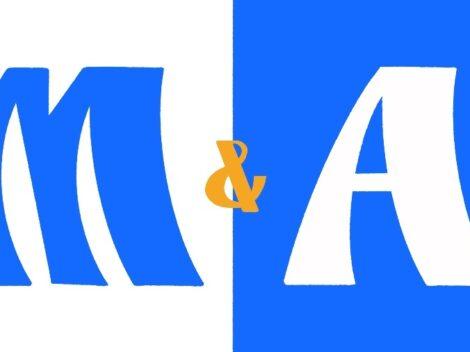“Computer, do I smell bad?”
This is not a question anyone asks of their connected device. Not in real life, and not even in science fiction.
In fact, it’s a struggle to name any pop-culture vision of a futuristic society in which the intersection of smell and technology factors in much. Rather, we seem to consider odor, and our own signature stinks, one of our core traits as living creatures.
In reality however, this notion doesn’t pass the smell test. Whether we like it or not, scent is just one more body of digitizable information, much like images or sound.
Technically, we don’t need a nose to detect a scent any more than an iPhone 14 needs eyes to identify the smiling faces in a cheesy vacation pic. And the technology to detect and identify odors seems to be inching toward much broader adoption.
“It’s now possible to apply machine learning to quantify, digitize, and engineer scent,” wrote Alex Wiltschko, CEO of smell-focused startup Osmo, in a recent blog post. The Cambridge, Massachusetts-based startup, which pitches its technology as a combination of AI and olfactory science, raised $60 million early this year in a Series A backed by Google Ventures and Lux Capital.
There are actually quite a few smell-focused startups
Osmo is one of several startups at the intersection of scent and technology that has pulled in funding in the past few years. Using Crunchbase data, we assembled a list of 20 such companies, with focus areas ranging from digital scent detection to odor-based cancer diagnostics.
Health care is a major focus for funded smell-tech companies. This includes the second-largest investment recipient, Silicon Valley-based Koniku, which has picked up over $49 million to build what it describes as “smell cyborgs” tasked with diagnosing disease and maintaining health.
In a related vein, Montreal-based Noze has raised nearly $18 million in known funding to develop what it calls “the world’s first commercially ready digital nose.” A particular focus is on smell-enabled disease diagnostics,or using scent to unlock cues that the body is not functioning as it should.
On the public safety front, meanwhile, is Alachua, Florida-based Canaery, which has raised millions in seed funding to develop a “nose-computer interface.” It aims to develop smell-detection technology that could rival the capability of an animal trained to sniff out pests and dangerous or illicit substances.
Nose vs. AI
Smell digitization could also help us cook up more products with appealing aromas. Osmo’s Wiltschko envisions a world in which AI is “augmenting the role of synthetic chemists and master perfumers,” as it combs through myriad molecules to create scents.
Osmo’s roadmap for digitizing scent involves three pillars.The first will be to turn odor molecules into digital signals, a process the company compares to what a camera does for light and a microphone does for sound.
The second step will be understanding how signals are related and perceived as sense, similar to categorizing sounds by frequency. The third will be once again turning these digital signals back into atoms.
While we’ve yet to see the latest crop of smell-detection technologies deployed at scale, the future at least sounds promising. Who knows? As most pet owners well know, there are ways to engage with our surroundings using smell that humans will never understand firsthand. Perhaps technology can give us a better sense of what we’re missing.
Related Crunchbase Pro list:
Related Reading:
Clarification: The list in this story has changed since its original publication to update Moodify’s funding total.
Illustration: Dom Guzman
Search less. Close more.
Grow your revenue with all-in-one prospecting solutions powered by the leader in private-company data.

Stay up to date with recent funding rounds, acquisitions, and more with the Crunchbase Daily.



![Cloud computing device. [Dom Guzman]](https://news.crunchbase.com/wp-content/uploads/Cloud_Computing-1-470x352.jpg)


![Illustration of man searching for vacation rental. [Dom Guzman]](https://news.crunchbase.com/wp-content/uploads/Vacation_Rentals-300x168.jpg)



![Illustration of a tidal wave - Asia - Quarterly Reports [Dom Guzman]](https://news.crunchbase.com/wp-content/uploads/Quarterly-Asia-2-300x168.jpg)
67.1K Followers